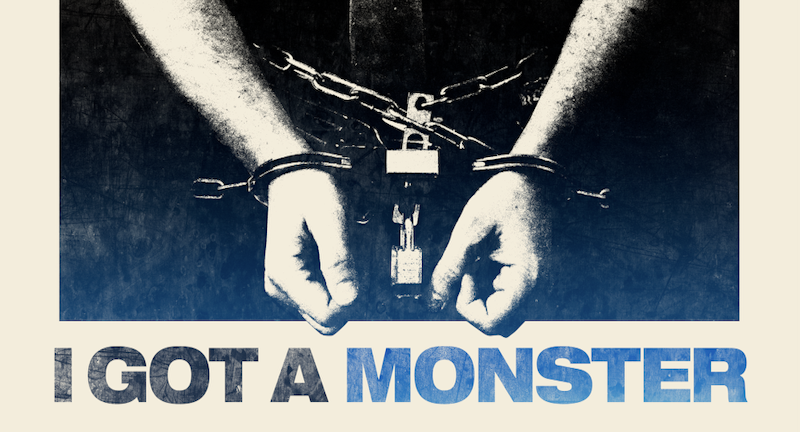Police officers in America don’t get arrested, indicted, and convicted of crimes easily. When cops go to prison, it’s usually because they did something very bad, and were caught while doing it. It’s also not a common occurrence for police to be charged with racketeering.
But all of that happened with the Baltimore Police Department’s Gun Trace Task Force, a notorious unit that consisted of nine members, eight of whom were convicted of crimes. The Task Force, which operated more like a gang than law enforcement, was known for crimes large and small, ranging from robberies to planting evidence to general brutality. They also tainted countless criminal convictions.
The Task Force is the main topic of I Got a Monster, a new documentary out this week in theaters and on VOD. While there’s not much new or inventive about it as a piece of filmmaking, it tells the story well, setting up the context of the system that allowed a group of rogue cops to get away with what they did for so long.
The 90-minute documentary moves fast through several years of history, convincingly laying out what happened and why. One of the leading talking heads in I Got a Monster is longtime defense attorney Ivan Bates, who represented Alicia White, one of the accused officers in the Freddie Gray case, and a man who’d gone toe-to-toe in court for years with Wayne Jenkins, the ringleader of the Task Force. The documentary treats Bates as a white knight figure, and if I Got a Monster has a big weakness, it’s that at times it feels like a campaign commercial for Bates, who has since been elected State’s Attorney in Baltimore.
The 2021 HBO mini-series We Own This City, from The Wire creator David Simon, covered the same events. The Simon series was based on a book by Justin Fenton, a Baltimore Sun reporter like Simon once was. I Got a Monster is based on a different book about the case, 2020’s I Got a Monster: The Rise and Fall of America's Most Corrupt Police Squad, by Baynard Woods and Brandon Soderberg.
In 1991, Simon wrote the book Homicide: A Year on the Killing Streets, based on his year embedded with the BPD’s homicide unit, and later made his showbiz entry by joining its TV adaptation, Homicide: Life on the Street, as a writer.
Whereas Simon’s The Wire mostly took the line that policing is broken because all American institutions are broken and that the specific problems of police departments are mostly driven by the department brass being self-interested political hacks, We Own This City was a show for its time and more directly about these cops being corrupt. There are moments in the documentary that were also told memorably in the HBO show, such as the staged videotaped discovery of a cooler full of cash, and the ruse that led to the arrest of Jenkins.
There have been numerous documentaries in the last 10 years about the state of policing in America. The best one remains Craig Atkinson’s 2016 Do Not Resist, which was about the chilling “warrior training” by cop consultant Dave Grossman. As for Baltimore-specific police docs of recent years, my favorite remains Marilyn Ness’ 2018 Charm City, which was broadcast on PBS and told the story of the Police Department’s chaos through its endless cycling of police commissioners.
And 2021’s The Slow Hustle was about the death of Sean Suiter, shot and killed in 2017, the day before he was to testify in court in connection to the Gun Trace Task Force probe. That was directed by Sonja Sohn, an actress from The Wire. The circumstances of Suiter’s death are controversial, as was the Simon mini-series’ conclusion that he died by suicide but staged it to look like a murder.

